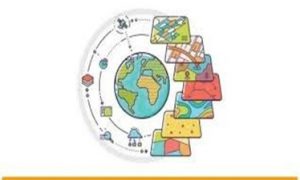
ISSDQ 2023- Artificial Intelligence and Uncertainty Modeling in Spatial Analysis
Spatial data quality concerns with the reliability, confidence and trustworthiness of spatial data and their fitness for use. In the new era of spatial big data, IoT, smart city, ubiquitous spatial information systems and volunteered data produced using space-borne, areal and geo-sensors as well as human sensors in the phases of collection, fusion and leveraging artificial intelligence for spatial information extraction, and modeling, the issue of spatial data quality and uncertainty assessment requires more attention than ever before. Spatial data quality and uncertainty assessment/modeling are integrated components of spatial information systems main functionalities in measuring, mapping, managing, modeling and monitoring. The 12th International Symposium on Spatial Data Quality (ISSDQ 2023) will be part of the ISPRS Geospatial Week 2023, hosted by the Arab Academy for Science, Technology, and Maritime Transport, in parallel with a number of related geospatial workshops. The event will be held as a two-day single-track symposium of keynote and oral presentations as well as poster sessions and a panel discussion in the context of the ISPRS Geospatial Week.
CHAIRES






